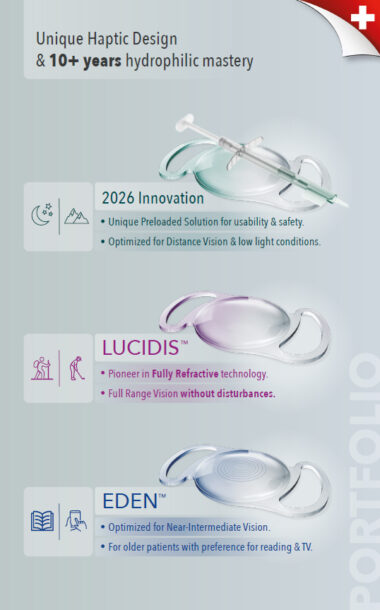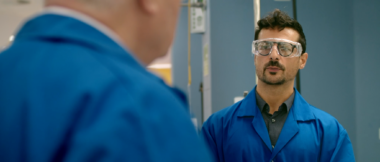Nationwide RSV immunisation program
to keep 10,000 babies out of hospital
Immunisation advocates are heralding the Albanese Government’s commitment to the first all-infant RSV (respiratory syncytial virus) immunisation program as a turning point on the leading cause of hospitalisation for Australian babies.
According to the Immunisation Foundation of Australia, nationwide availability of new RSV immunisations – for use by either pregnant women or babies – will keep up to 10,000 infants out of hospital with related bronchiolitis or pneumonia each year.
“Severe RSV is responsible for around 12,000 babies being admitted to hospital each winter,”1 said Catherine Hughes AM, Founder and Director of the Immunisation Foundation of Australia.
“The immunisations being funded in Australia protect babies against severe RSV and have been shown to slash hospitalisation rates by up to 90 per cent,”2,3 she said.
Ms Hughes says that after extensive campaigning by the Immunisation Foundation of Australia and its supporters, “the Federal Government has listened and acted”.
“This is a monumental milestone for preventative health. We applaud Minister Butler for ensuring all Australian babies are protected against severe RSV,” she said.
Western Australia was the first Australian state to introduce an all-infant RSV immunisation program with the antibody therapy Beyfortus. During the 2024 RSV season, more than 23,000 infants received RSV protection, resulting in up to 84 per cent fewer RSV-related hospitalisations in immunised newborns, compared to those who were not RSV protected.4 Similar outcomes were reported in Queensland, which commenced a statewide infant RSV immunisation program with Beyfortus in April 2024.
“The exceptional results in Western Australia and Queensland contrast sharply with other parts of Australia where hospitals were overwhelmed by babies struggling to breathe due to severe RSV,” Ms Hughes said.
Set for rollout in 2025, Australia’s first national infant RSV immunisation program will offer pregnant women a vaccine known as Abrysvo or allow newborns and infants approaching the RSV season to be administered Beyfortus.
“In offering two different infant RSV immunisation approaches, Australia can maximise uptake by catering to different family needs and varying health system dynamics, becoming a world leader in RSV protection,” Ms Hughes said.
“The Immunisation Foundation of Australia will focus on supporting acceptance of these groundbreaking immunisations to keep babies out of hospital and at home where they belong.”
RSV b-roll package and Karl Stefanovic RSV educational video available here.
Media Contacts: Catherine Hughes on 0421 483 391 or Candice Hitchcock on 0466 586 758 or [email protected]
For an interview with a medical expert or family impacted by RSV please get in touch.
About RSV (respiratory syncytial virus) in children
RSV is the number one cause of hospitalisation for Australian children under five years of age, with up to one-in-four of these children requiring intensive care.1 Typically, around 12,000 Australian babies aged less than 12 months or younger are admitted to hospital with RSV each year.1
RSV is a highly contagious virus that most often strikes during the winter months. Almost all children will be infected by RSV before the age of two. Babies under the age of six months are most likely to develop severe symptoms, including serious lung infections such as bronchiolitis and pneumonia.5 Further information can be found here.
The Australian Infant RSV Immunisation Program will offer two TGA approved RSV protections:
- Beyfortus, an antibody therapy for the prevention of RSV-related lower respiratory tract disease in infants entering their first RSV season, and for children up to 24 months of age who remain vulnerable to severe RSV disease through their second RSV season.
- Abrysvo, a vaccine for pregnant women between 28-36 weeks of gestation for the prevention of lower respiratory tract disease caused by RSV in infants from birth through 6 months age.
Interview Opportunity
Catherine Hughes, Founder and Director of the Immunisation Foundation of Australia
Catherine is the founder of the Immunisation Foundation of Australia and Light For Riley, established after the death of her son Riley from whooping cough in 2015.
Only days after Riley's death, Catherine and husband Greg successfully advocated for the introduction of free whooping cough vaccines for pregnant women, resulting in a sharp increase in awareness of the impact of whooping cough in babies and up to 90 per cent of Australian pregnant women choosing to protect their babies during pregnancy.
In 2016, Catherine’s infant daughter Lucy was hospitalised with severe RSV. She says: “I won’t lie. We were consumed by thoughts of Riley and a foreboding sense of ‘not again’.” Catherine’s story can be accessed here.
In 2022, Catherine was appointed a Member of the Order of Australia for her services to immunisation.
References
- Evohealth. Time to Act – Protecting our children from RSV. 2023. Available at: https://www.evohealth.com.au/insights/time-to-act-protecting-our-children-from-rsv/
- Moline HL. Early Estimate of Nirsevimab Effectiveness for Prevention of Respiratory Syncytial Virus–Associated Hospitalization Among Infants Entering Their First Respiratory Syncytial Virus Season — New Vaccine Surveillance Network, October 2023–February 2024. MMWR Morbidity and Mortality Weekly Report [Internet]. 2024;73. Available from: https://www.cdc.gov/mmwr/volumes/73/wr/mm7309a4.htm?s_cid=mm7309a4_w#F1_down
- Drysdale SB, et al. Nirsevimab for Prevention of Hospitalizations Due to RSV in Infants. The New England Journal of Medicine. 2023 Dec 28;389(26):2425–35.
- Blyth C, et al on behalf of the REVIVE and STAMP RSV Investigators teams. Evaluating the Nirsevimab RSV prevention program in Western Australia – early insights into program impact. Options XII for the control of Influenza Conference, October 2024
- Dysdale, SB. Nirsevimab for Prevention of Hospitalizations Due to RSV in Infants. The New England Journal of Medicine 2023; 389:2425-2435. DOI: 10.1056/NEJMoa2309189. Available at: https://www.nejm.org/doi/full/10.1056/NEJMoa2309189
Key Facts:
- RSV is the No. 1 cause of hospitalisation in Australian babies.
- Nationwide infant RSV immunisation could keep 10,000 babies out of hospital each year.
- Minister Butler applauded for ensuring all Australian babies are protected against severe RSV.
About us:
About the Immunisation Foundation of Australia
The Immunisation Foundation of Australia was established by the family of Riley Hughes, who have become vocal advocates of immunisation after the death of their son from whooping cough in 2015. Believing in the importance of parents and community-members standing up to support immunisation, the foundation’s mission is to inspire further community-based immunisation advocacy, helping to protect babies and families from vaccine-preventable diseases.
In 2023, the Immunisation Foundation of Australia ran Australia’s first ever RSV Awareness Week, which encouraged families impacted by RSV to share their stories. The campaign was supported by Karl and Jasmine Stefanovic.
The Immunisation Foundation of Australia envisions a world where families are no longer affected by the unnecessary suffering and death caused by vaccine-preventable diseases. To help make this vision a reality, we are committed to creating a network of community-based immunisation champions, who share our common values of respect, integrity and evidence-based advocacy.
Contact details:
Catherine Hughes on 0421 483 391
Candice Hitchcock on 0466 586 758


